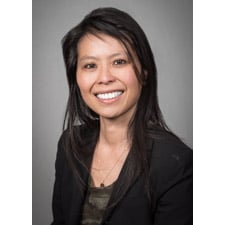Shirley Shiuh Leei Shih, MD
321 Crossways Park Drive, Suite B
Woodbury, NY 11797
Woodbury, NY 11797
Shirley Shiuh Leei Shih, MD, a colorectal surgeon at Northwell Health, specializes in treating all forms of benign and malignant colorectal disease-including Crohn's disease, diverticular disease and colorectal cancer-through minimally invasive laparoscopic surgery.She decided to become a doctor, like her father, while growing up Long Island, but it wasn't until she was in medical school at Albany Medical College, and attended a lecture on colorectal procedure, that she decided this was the direction she wanted to take. "My starting point was just wanting to help people, and as soon as I saw what type of new colorectal surgeries were being done, I could see the potential for boosting patient quality of life," she says. "Instead of stem-to-stern incisions that led to long recoveries, we could do minimally invasive procedures that offered faster recovery and less pain."Dr. Shih completed her residency at George Washington University Hospital and a fellowship at Cleveland Clinic in Florida, as well as at Indiana University School of Medicine. She spent seven years in private practice near Philadelphia, then returned to New York to join Northwell Health."The team-oriented approach here is very strong," she says. "There is such good communication and collaboration, both among partners in my practice and with everyone at Northwell generally. That gives patients more comprehensive support."Currently, she's enhancing her surgical skills by learning robotic surgery, as she's passionate about offering patients more options for treatment. She's also an assistant professor at the Donald and Barbara Zucker School of Medicine at Hofstra/Northwell. Other efforts include training residents to provide enhanced patient care, and pursuing excellence in rectal cancer treatment at Huntington Hospital.Part of her lifelong learning comes from patients as well. "What I've learned from them is to treat every patient as an individual," she says. "It's important for me, and for all doctors, to tailor each discussion based on what a patient needs. I try to remember that with every patient conversation."

